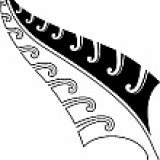Word of the Day: Poem
-
Jordan
14 years agoPoem
- noun
Pronunciation:
[Po-um]
Definition:
1. a composition in verse, especially one that is characterized by a highly developed artistic form and by the use of heightened language and rhythm to express an intensely imaginative interpretation of the subject.
2. composition that, though not in verse, is characterized by great beauty of language or expression: a prose poem from the Scriptures; a symphonic poem.
3. something having qualities that are suggestive of or likened to those of poetry: Marcel, that chicken cacciatore was an absolute poem.
Etymology:
1540s (replacing poesy), from M.Fr. poeme (14c.), from L. poema "verse, poetry," from Gk. poema "thing made or created, fiction, poetical work," from poein "to make or compose" (see poet).
Quote with the word:
This one's long, but it's too good to leave unposted.
"For a symbol is like a rock dropped into a pool: it sends out ripples in all directions, and the ripples are in motion. Who can say where the last ripple disappears? One may have a sense that he at least knows approximately the center point of all those ripples, the point at which the stone struck the water. Yet even then he has trouble marking it precisely. How does one make a mark on water? ... The ripples continue to move and the light to change on the water and the longer one watches the more changes he sees. And such shifting-and-being-at-the-same-instant is of the very sparkle and life of poetry. Of poetry and of life itself. For the poem is a dynamic and living thing. One experiences it as one experiences life - as everybody but Mr. Gradgrind experiences life. One is never done with it: every time he looks he sees something new, and it changes even as he watches. And that very sense of continuity in fluidity is one of the kinds of knowledge, one of the ways of knowing, that only the arts can teach, poetry foremost among them."
- John Ciardi (1916�1986), U.S. poet, critic. -
abracadabra
14 years agoMmm. I miss chicken cacciatore. Oh well, at least I can still say it: chicken cachiaTOrrraaay!
Also, to all those who say they write 'pomes', please note the pronunciation of poem. There's an um in poem. I actually agreed with the definitions listed here. I liked that prose was included within poem.
Nice quote, Jordan. Almost too poetic, really.
"For the poem is a dynamic and living thing.... One is never done with it..And that very sense of continuity in fluidity is one of the kinds of knowledge, one of the ways of knowing, that only the arts can teach"
Amen to that, bruv. -
Jordan
14 years ago:D


